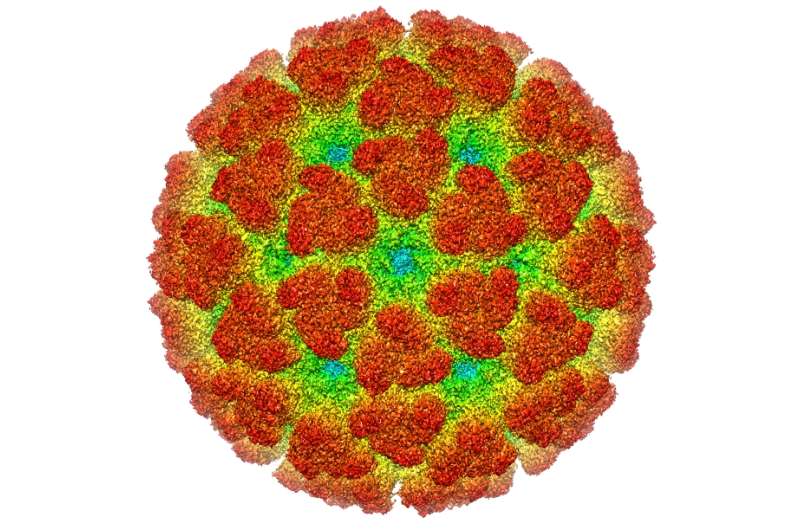Mild symptoms could mean that children are bringing chikungunya to the playground

Children recover from chikungunya viral infection more quickly than adults, which could make them hidden carriers of the disease, finds a team of immunologists and pediatricians in Singapore and Malaysia.
Unlike adults, who typically stay indoors while the virus is active, children feel less wretched and continue to play outdoors, exposing themselves to mosquitos. "Some kids still carry the virus in their blood even when they don't feel sick anymore, which is scary," says Lisa F. P. Ng, who led the study at the A*STAR Singapore Immunology Network (SIgN). "It is important to clinically manage children from serving as reservoirs of infection."
Chikungunya is a painful viral disease transmitted via mosquitos that also carry dengue and the Zika virus. Identified in Tanzania in 1953, the virus has since spread worldwide. There are no specific antiviral treatments for chikungunya and vaccines are stalled in preclinical trials.
Infected adults typically suffer from fever, rashes and debilitating joint pain that can persist for months to years. But clinicians at Sarawak General Hospital in Malaysia, led by Ooi Mong How, noticed that children didn't suffer as much. They approached Ng and her team to explore the immunological basis for the chills and aches.
The team studied blood samples from 86 chikungunya-infected infants aged 1 week to 11 years, who visited the hospital between 2009 and 2010. They compared these samples with those of 64 infected adults in Singapore. The children expressed higher levels of small proteins known as cytokines, which communicate information between immune cells. "They have a very active immune response at an early stage, and then it clears off fairly quickly," explains Ng. The spiked cytokine activity could explain the children's improved clinical outcomes.
The children's results revealed a more complex picture. More than half still had the virus circulating in their blood when discharged from hospital. Compared to those who had hastily rid their bodies of the virus, these children had lower cytokine levels and complained more of joint pain. The results further supported the conclusion that clinical severity is closely associated with immunological response and virus elimination. "Children with early viral clearance have milder disease," says Ng. But more concerning for Ng was the seemingly healthy, yet still infectious, group. "You think they are safe, but they are not."
Ng is keen to compare these results with other infected infant populations. "The virus is here to stay, so the best thing we can do is to try to understand it."
More information: Diane Simarmata et al. Early clearance of Chikungunya virus in children is associated with a strong innate immune response, Scientific Reports (2016). DOI: 10.1038/srep26097














